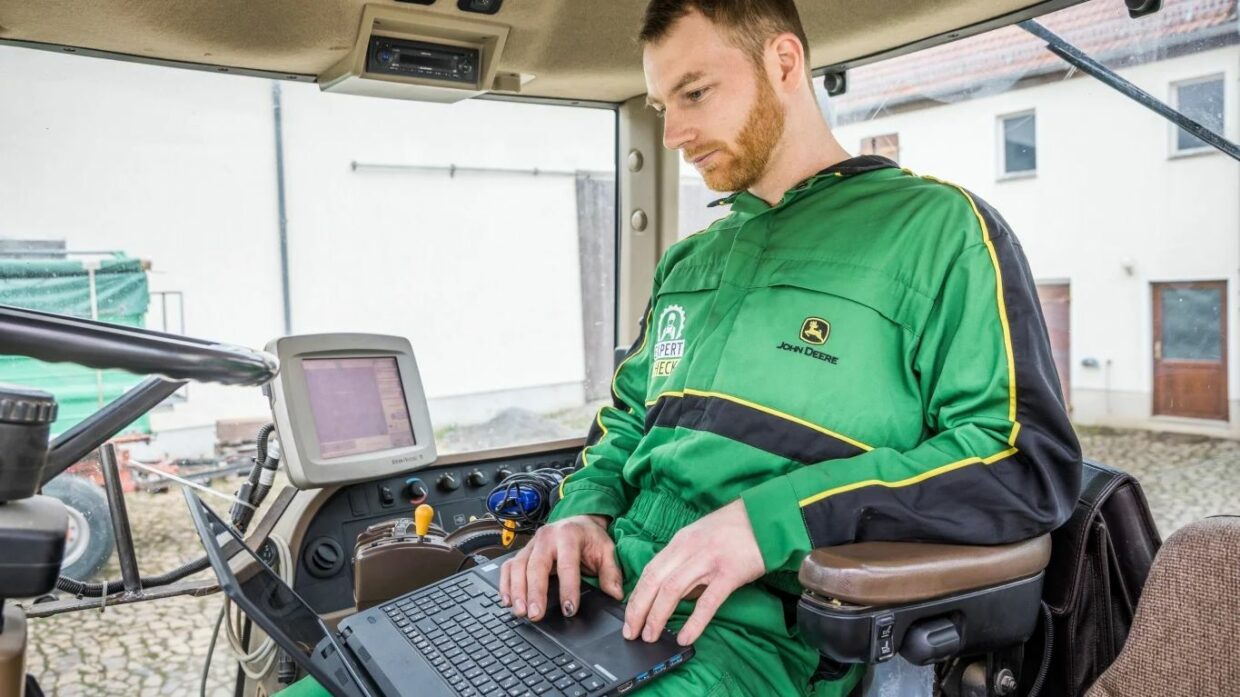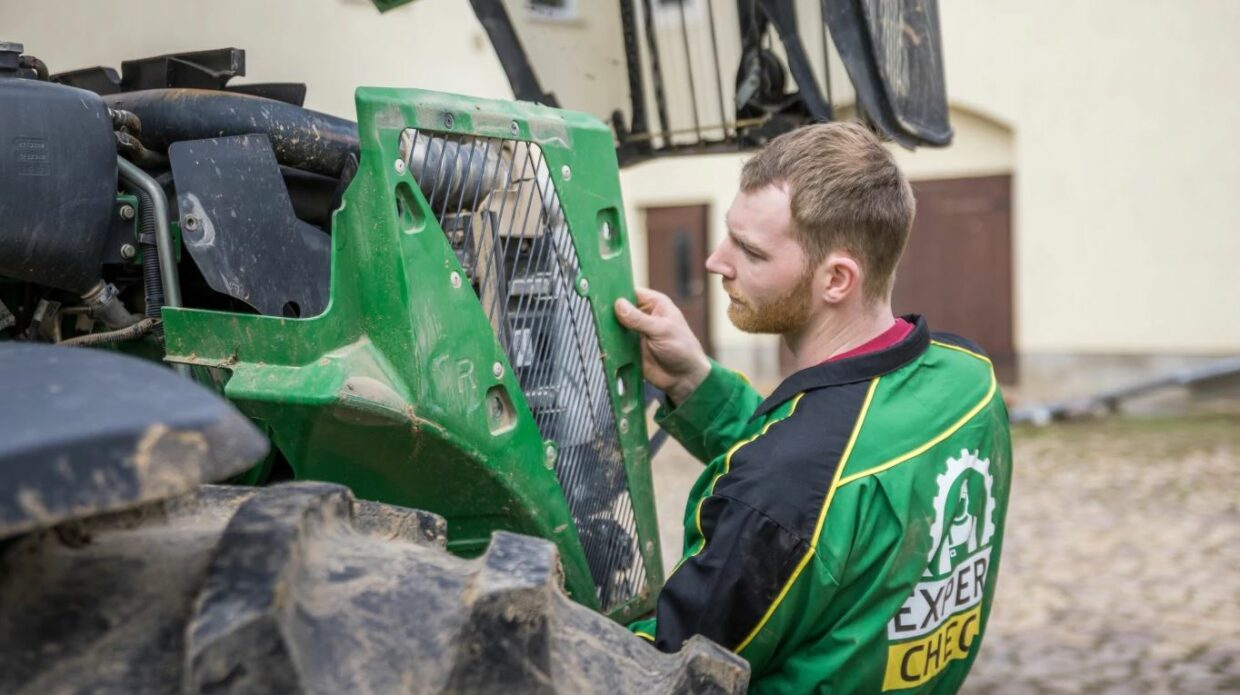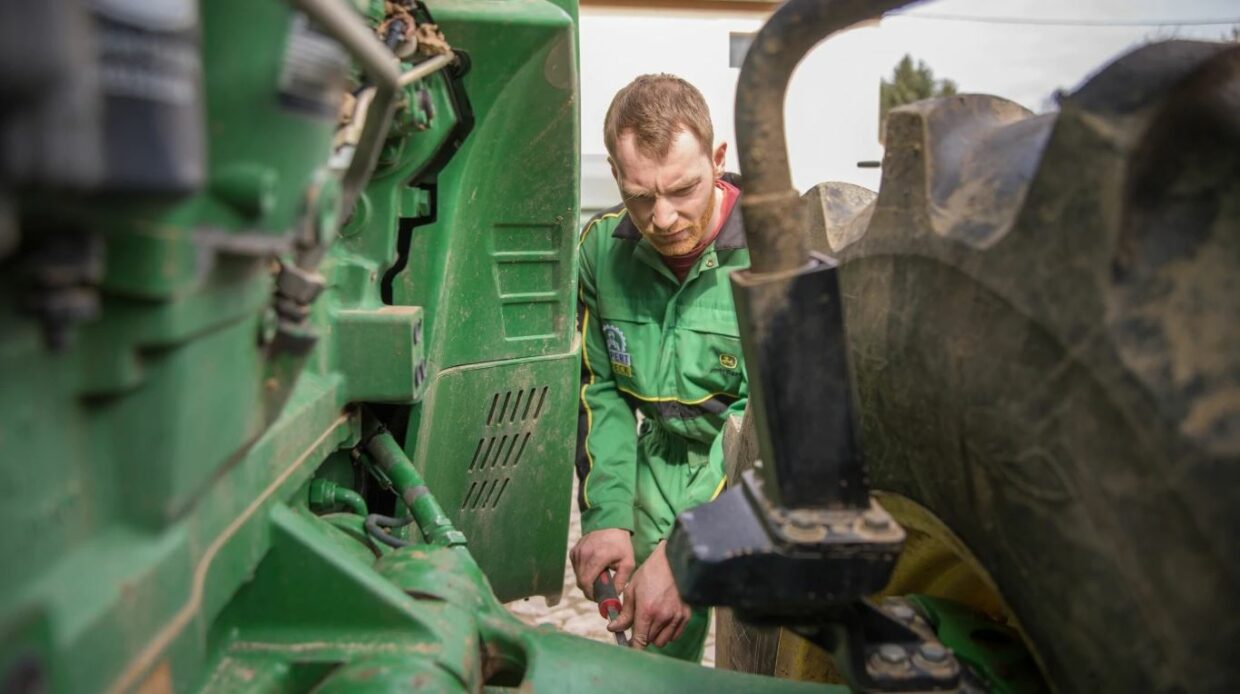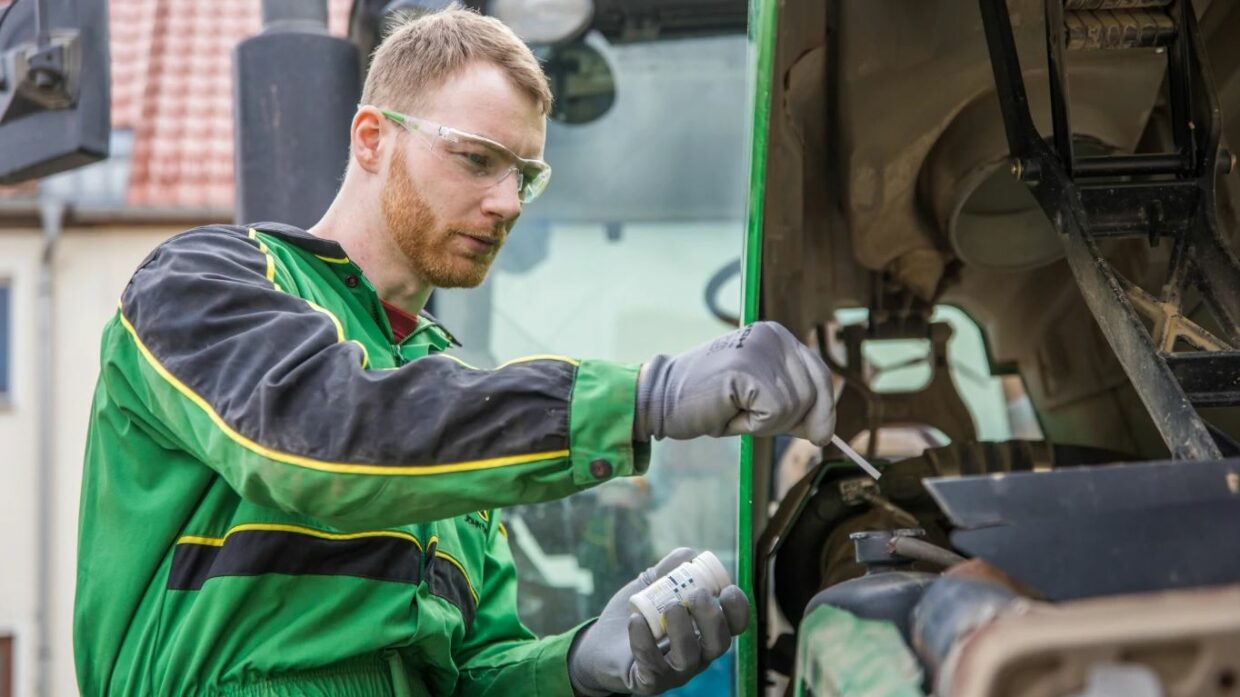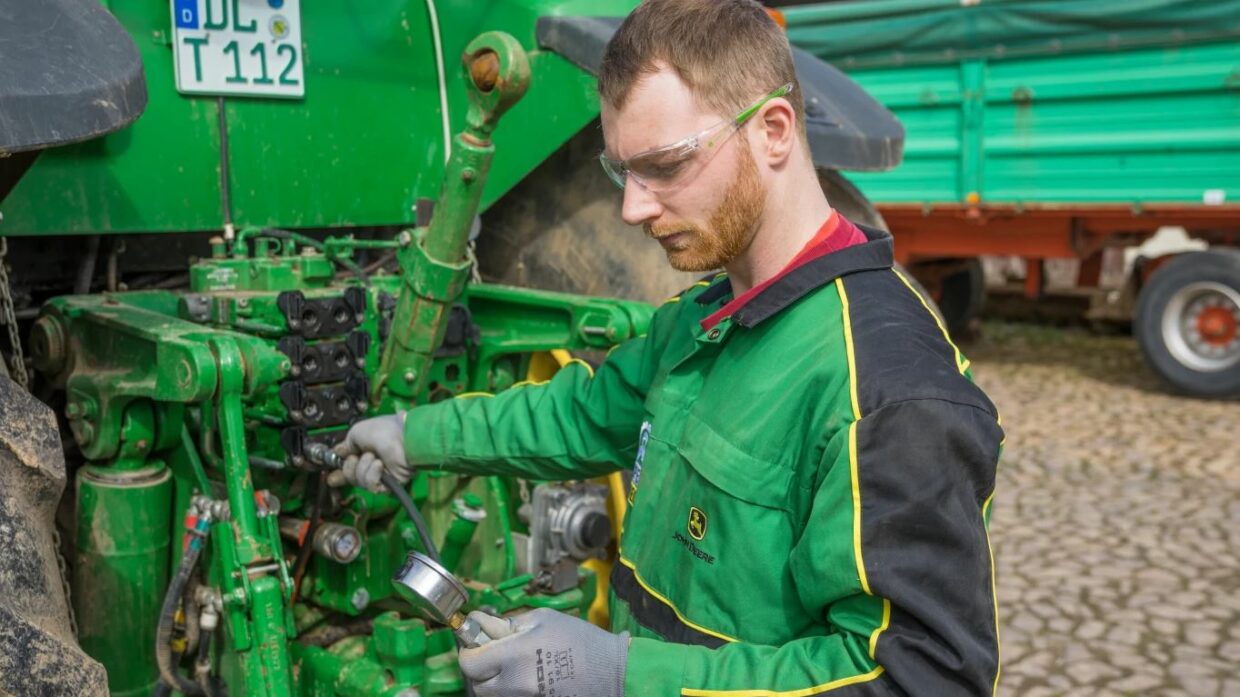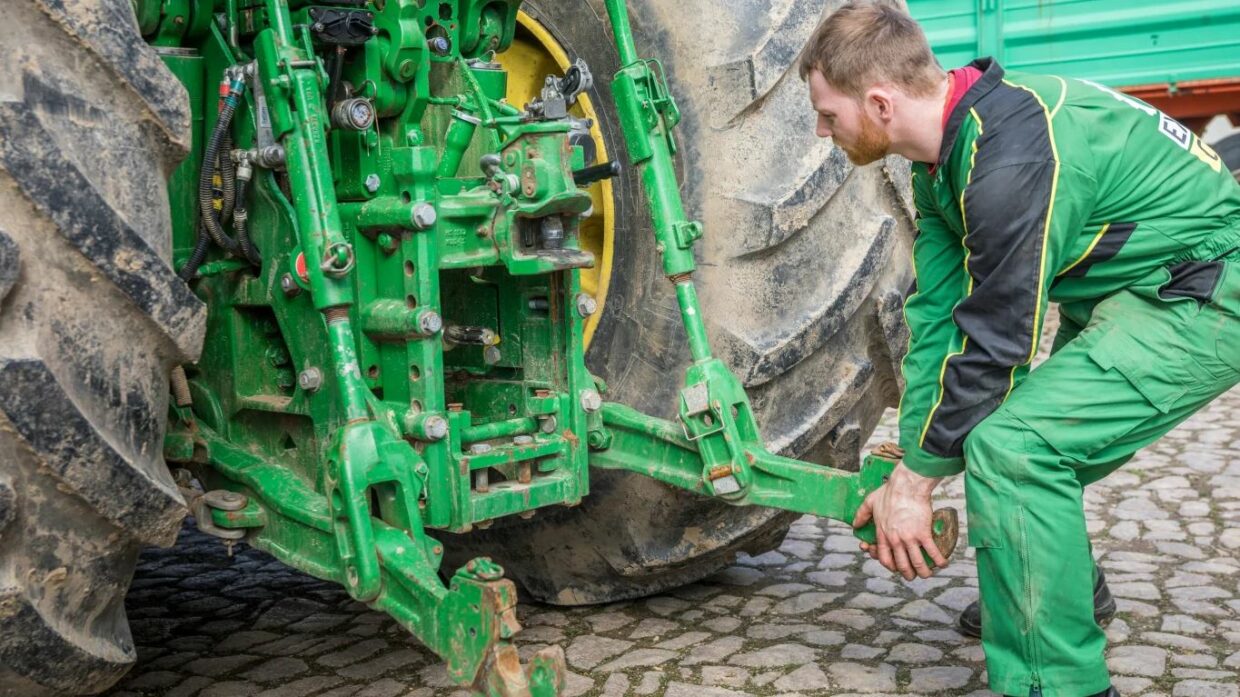Steffen Tkacz’s farm is quietly located at the end of Ostrava-Zschochau – a community of 200 inhabitants in Saxony, Germany, about 50km northwest of Dresden. It rained the day before I met him, and the fields are still wet. The 57-year-old farmer cannot work on them today. A perfect day to have his tractor checked out. His 8403 John Deere is already waiting on the cobblestones of the rectangular farm. ”The tractor is my baby,” says Mr Tkacz. ”It has been with me for eight years and has around 4,000 hours of operation. I use it for spraying and general work, basically everything. That’s why it has to run reliably.” Since 2015, Mr Tkacz has farmed around 100ha of land, growing sugar beet, maize and wheat.
Thomas Merkel will find out how things stand with the 8403 on this day. The 29-year-old has been working as a service technician for John Deere for around 10 years. He is very familiar with the model and knows where he needs to take a closer look during the check. ”Front axles and VariCool belts are often an issue,” he says.
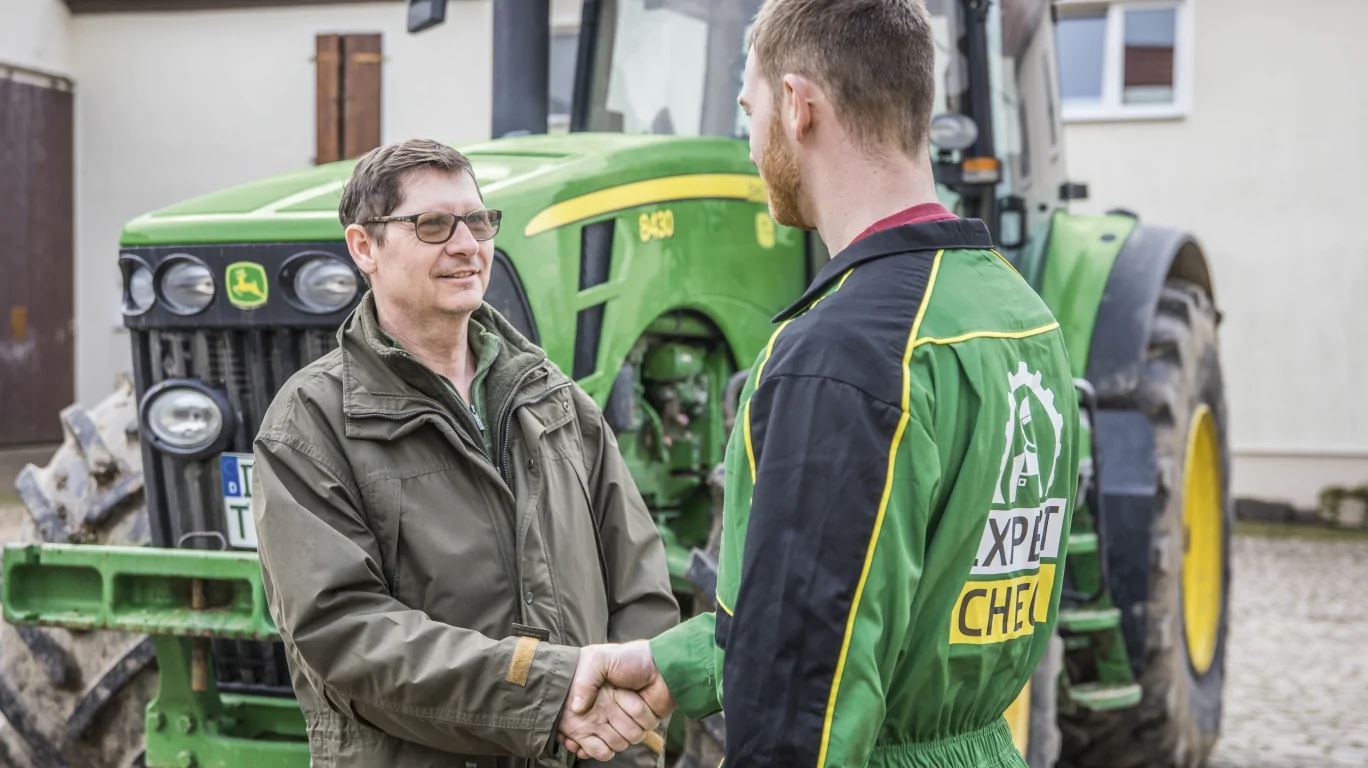
Thomas Merkel and his colleagues check agricultural machinery as part of the John Deere Expert Check.
The love for agricultural machinery runs in the blood
Mr Merkel acquired his love for green-yellow agricultural machinery almost as a baby. His father’s farm only had John Deere machines. ”Anything else was out of the question for my father,” he laughs. The fascination for agricultural machinery has become second nature to him. ”Many people like to work on cars,” he says. ”But I find that totally boring. You always have the same parts and models. There is more variety in agricultural machinery. And because you often work on them outside in the field and not in the workshop, where you have everything, a lot more talent for improvisation is required.”
The expert checks with every sense
During the Expert Check, Mr Merkel works on the basis of a fixed protocol that he has on his tablet, but also draws on his experience – and uses every sense when checking. ”I listen to the engine and then assess whether everything is ok. Then I smell the engine oil, for example, to see if it smells burnt. If I find a leak somewhere and it is not immediately clear what kind of liquid it is, I will have a taste if necessary.”
But before Mr Merkel puts his hand on the machine, he first talks to the customer. ”You can find out important details in this preliminary talk,” he says. This is also the case with Mr Tkacz: ”There is condensation in the cab and the front axle squeaks when steering.” Mr Merkel listens carefully and then gets down to work. He begins in the cabin with clean hands, reads out error codes and checks the seat. Then he deals with the condensation and quickly finds the error: ”The air conditioning system needs to be cleaned and disinfected.”
While Mr Merkel goes through the individual check points and notes any anomalies, he also thinks about the customer’s wallet. After all, not every repair has to be immediate; some can wait until the season is over. For Mr Merkel it is important that the Expert Check is understood as a preventative instrument. ”For the customer, Expert Check is not particularly expensive. But on the other hand, they can save a lot of money because I can recognise early on what might soon become a problem and inform the customer in good time.”
With Mr Tkacz’ tractor, the problem with the squeaky steering is such a case. When Mr Merkel notices that something is playing up, the farmer’s heart skips a beat. But the expert can reassure him: ”I can adjust that quickly”. Without these few steps, this would have resulted in a much more expensive problem in the long run.
You can find out important details in this preliminary talk.
Thomas Merkel
Mr Merkel notices something when he checks the steering and the VariCool system. ”The VariCool belt is heavily worn. It will last this season but will then have to be replaced. Otherwise the tractor is generally in very good condition.” Mr Tkacz is pleased: ”I service it myself every day and make sure that it is in good condition,” he says.

The Expert Check begins with a preliminary discussion. Thomas Merkel learns a lot about the tractor.
At the end of the check, Mr Merkel goes through the results in detail with the farmer using the checklist. Then the keys are handed back to the customer. An ”Expert Check” tag now dangles from the key. Farmer Mr Tkacz sums up: ”The Expert Check has paid off for me again this year. Now I know where I stand and can start the new season with peace of mind.”


